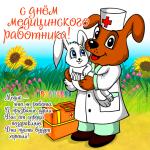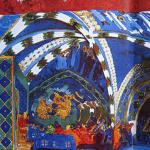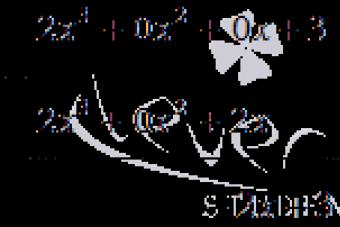Books. The quiet rustle of paper, reminiscent of the whisper of the wind, the aroma of book pages, combining notes of wood, paint and human touch. Small black letters, like beads, scattered across the white sky of the pages. These letters contain eternity.
What do books mean to a person? Answering this question is much more difficult than it seems at first glance, because there are so many people around and it is impossible to look into their heads to read their thoughts. But you can try.
Someone is looking for knowledge in books, like that graying man with glasses who is sitting on the bus seat next to you. The look of his penetrating pale blue eyes remembers every new psychological term that comes across to him in the book. The books he reads do not have bright, flashy covers, but they contain accurate information about the number of people inhabiting the planet, the habits of Australian opossums, or what parts make up a car engine. With the same rapture, the grandson of this graying man is at this very moment reading a history textbook at home, greedily remembering everything that happened in past centuries, when there was no trace of him yet.
But this cute blonde with a dreamy look and bow lips, who sits opposite you, is looking for her love in books. A prince on a white horse, on a black one, a prince on a Mercedes, on a Volga, on a bicycle, or, in the end, a prince on his own two feet - these are her dreams, these are her dreams. The books she reads are hidden under pink bindings with hearts, their covers feature kissing couples, and the title is written in gold and always ornate. People like her fall madly in love with book heroes, because in reality they don’t meet heroes. And she reads only in her free time, for example, when she is riding the bus or taking a bath.
And over there, in the corner, sits a cute girl with brown hair and distant gray eyes. She reads constantly. Wherever she goes, she takes a book with her. She reads a lot and loves different genres. She doesn’t pay attention to the cover, as long as it’s written in an engaging and meaningful way. What is she looking for under the leather bindings? Probably another reality that will be dearer to her than the present one. Maybe she wants to find a corner in books that will shelter her. She is a book traveler. A man who lives hundreds of lives in hundreds of worlds. She is a dreamer, like Peter Pan in a skirt, who does not want to grow up and does not recognize the cruel realities.
And here you are. You sit and read another detective story or a science fiction novel about life on other planets, or maybe a classic, for example, by Bulgakov or Wilde. Don't know. You can read anything. But here's your stop. You close the book and put it in a shabby blue backpack, or maybe not blue at all, but in a bright yellow one. Again, I don't know. You go outside and deeply breathe in the autumn air. What do you look for in books? Maybe you're just reading? You read for pleasure. You just read, you're just a reader. And you will understand what you are looking for in books only when you find it.
So what role does literature play in a person’s life? Don't you understand yet? I will say. The most important role. Book pages store knowledge, dreams, secrets, mysteries, illusions. Books help you understand yourself and the world around you. Books connect us to the past, envision the future, and make the present better.
Books are paper doors to huge new worlds that fit on a small bookshelf.
Andreeva Vera
Twenty first century. The age of computers, interactive systems and virtual reality. Do modern people need books? My answer is yes. Every person needs books, because in the whirlwind of modern life we worry about school, work, whether our phone is charged, and we completely forget about our soul, which also needs solitude and recharging. Books are a one-of-a-kind spiritual healer that can heal our spirit as well as positive emotions. A person grows both intellectually and morally by reading.
Download:
Preview:
Twenty first century. The age of computers, interactive systems and virtual reality. Do modern people need books? My answer is yes. Every person needs books, because in the whirlwind of modern life we worry about school, work, whether our phone is charged, and we completely forget about our soul, which also needs solitude and recharging. Books are a one-of-a-kind spiritual healer that can heal our spirit as well as positive emotions. A person grows both intellectually and morally by reading. For me, every work I read is a life lived, after which I gain experience and become wiser. Some simply do not understand the value of literature and everything contained in it. By reading, I learned to understand human nature, what is hidden in it, the motivation of certain people’s actions. And most importantly, I learned not to judge people without knowing their story.
You can't judge a book by its cover. Books are the same people, and, as the Strugatsky brothers wrote, among them there are “kind and honest, wise, knowledgeable, as well as frivolous dummies, skeptics, madmen, murderers, children, sad preachers, self-righteous fools and half-hoarse screamers with bloodshot eyes " As for me, literature is my everything: mentor, friend, hobby. She taught me only good and bright things, opened my eyes to many things, taught me to love the word, in the words of Mayakovsky, “the commander of human power.”
Literature is an art, and like any art, it has its own names that have glorified it. I have my own respect for each writer who has contributed to the development of literature, but I especially highlight a few names and works from all that I have read so far. So, my adoration of psychological novels grew into a love for the works of Fyodor Mikhailovich Dostoevsky. With full confidence I can call him our contemporary, unlike some other classics, because everything he wrote is relevant to this day. I admire his style and experience aesthetic pleasure from what I read. Dostoevsky is an expert on the Russian soul; I am surprised every time at how one can so accurately and accurately describe human feelings and emotions that are hidden very deeply.
An equally important and favorite work for me is the parable story written by Richard Bach, “Jonathan Livingston Seagull.”A sermon about self-improvement and self-sacrifice, a manifesto for boundless spiritual freedom. Spiritual freedom is something I would like to have in this life. This book is the cry of the soul of every person who understands this world at least a little. For me, Jonathan Livingston is the embodiment of the ideal of a strong, independent person who loves life in all its manifestations. Re-reading this book, each time I discover something new that fills, frees me and gives me strength for further achievements. Books are supposed to do just that - inspire. Literature inspires me to do good deeds, love people, gives me hope for a better outcome of events and teaches me to understand people.
The concept of true love was given to me by Charlotte Bronte's novel "Jane Eyre". The most fantastic thing about it is not the love story itself, but the fact that the essence of any relationship lies in the ability to forgive and accept a person for who he is, along with his past and his demons. Few people know how to truly forgive; the residue from betrayal still remains in us and comes to the surface in the future. There is power in forgiveness. Rereading this novel, each time I understand more and more the essence of the word forgiveness.
For me, a mini-manifesto of love and bright human feelings is the allegorical fairy tale story “The Little Prince” by Antoine de Saint-Exupéry. A story about how important it is to preserve the child within you and not freeze your soul. Even the largest epic novels cannot convey the vital things contained in this small book.“The most important thing is what you cannot see with your eyes...”, said the Little Prince. Feelings are something that will always be higher and clearer than any spoken words.
Literature is my little world in which you can hide from all the storms of life, and books are my friends who will always calm you down, never betray you, and instill hope. Even the great Anton Pavlovich Chekhov said: “Everything in a person should be beautiful: his face, his clothes, his soul, his thoughts...” Literary works help us in this, making us beautiful on the inside, and if a person is beautiful on the inside, he is charming on the outside - this is an unchanging truth of life, the same as the law of the boomerang. When reading books, a person retires and finds time to think. Just don't confuse loneliness with. Loneliness for mepsychological, spiritual, solitude is physical. The first dulls, the second calms. Solitude leads to harmony with yourself, with your mind, thoughts and feelings. Books help us with this by making us better, instructing us and calming us down. When I read, I take a break from the daily routine, I can forget about everyday problems for a while and just enjoy reading. Literature is the best human invention that has ever existed.
Literature is a huge repository of spiritual and moral values.
It would seem that each of us has long been familiar with the concept of “literature”. But sometimes we don’t even think about how polysyllabic and multi-valued literature is. But literature is a grandiose phenomenon, it was created by the genius of man, is the fruit of his mind.
What is the role and significance of literature in human life?
Literature is a means of understanding the world; it helps us understand “what is good and what is bad,” and points to the origins of universal human conflicts.
Literature helps us see the inner beauty of a person, learn to understand and appreciate it.
Literature is a powerful source of education of the spirit and personality. Through the disclosure of artistic images, literature gives us concepts of good and evil, truth and falsehood, truth and lies. No reasoning, the most eloquent, no argument, the most convincing, can have such an impact on the human mind as a truthfully drawn image. And this is the power and significance of literature.
There is a very important concept in literature - “text”. Proper work on the text by the best wordsmiths and writers is of great importance. It broadens a person’s horizons, teaches him to read thoughtfully, to understand the ideas that the author expresses through images. Competent work on the text enriches a person’s vocabulary, develops the ability to master the literary language and various artistic techniques.
Literature is a powerful weapon that can heal.
Literature shows us ways of self-improvement.
Say a word about Russian literature. Among the advantages of Russian literature there is one, perhaps the most valuable. This is her constant desire to sow “reasonable, good, eternal”, her persistent impulse towards light and truth. Russian literature has never been confined to the area of purely artistic interests. Its creators have always been not only artists describing phenomena and events, but also teachers of life, defenders of the “humiliated and insulted,” fighters against cruelty and injustice, adherents of truth and faith.
Russian literature is extremely rich in both positive and negative images. Watching them, the reader has the opportunity to experience the whole gamut of feelings - from indignation and disgust for everything low, rude, and deceitful, to deep admiration and admiration for the truly noble, courageous, and honest.
Literature erases the boundaries of time. She introduces us to the spirit of a particular era, to the life of a particular social environment - from Tsar Nicholas to the gymnasium teacher Belikov, from the landowner Zatrapeznaya to the poor peasant woman - the mother of a soldier.
The disclosure of artistic images is the main part of literary reading, its basis. Every artistic image, as is known, is at the same time both a reflection of reality and an expression of the writer’s ideology. It is not enough just to familiarize yourself with a literary work. We must try to penetrate the secrets of the plan, to know the background to the creation of the essay.
Literature develops the mind and feelings. She is our teacher, mentor, guide. A guide to the world of the real and the unreal. The ability to express thoughts in words is a distinctive feature of a person. Words are a mirror that clearly reflects the degree of spiritual development. Everything that enters our soul from the outside is imprinted in our feelings, thoughts, and in the very way of their expression.
In the works of one writer we find laughing pictures, picturesque images: this is because his spirit was brought up in the bosom of nature, where she scatters her gifts with a generous hand.
Another sings on the lyre of his battles and battles, the horrors, the sad phenomena of a suffering life: this is because the soul of the creator knew many groans.
In the works of the third, human nature appears in the most pathetic contradiction with the idea of beauty: because, on the one hand, evil, always at war with good, and on the other, disbelief in the high purpose of man, have embittered the owner of the pen.
Literature is multifaceted, its creators are very different. Literature grew up along with Pushkin and Lermontov, Gogol and Chekhov, Blok and Akhmatova. It is still developing now. Her ideas continue to live and fight on our planet, they help rid the world of filth, cruelty, and insignificance.
Writers of all times and peoples have tried to answer the question: “What place does literature occupy in a person’s life?” After all, no matter what work you take, you can see this problem everywhere. The famous Soviet writer Fyodor Aleksandrovich Abramov did not ignore it either.
Books and literature play a vital role in everyone’s life. After all, reading works, we have the opportunity to travel through years, through entire eras, both forward, into the future, and back, into the past, observe various natural beauties, and witness interesting and truly exciting events. But everyone knows that the book is not endless, and after reading its contents become the object of sometimes very lengthy reflections, which will certainly lead us to a vital conclusion. It is this fact that makes literature an integral part, a dear companion in our destiny.
He is convinced that it is the only way out, the only salvation for young people in an environment “with increased egocentrism and individualism, with dependent and consumerist sentiments, with the loss of a careful and loving attitude towards the earth, towards nature, with cold rationalism.”
And it is simply impossible to disagree with the writer. After all, only literature can help us preserve and enhance the spiritual culture that has been accumulated by centuries of folk experience.
And it often happens that a book becomes our closest friend, assistant, companion in our difficult life. Thus, Maxim Gorky, in his autobiographical trilogy, tells readers about the life of the boy Alyosha, who did not have the opportunity to go to school at all, and therefore books became his only source of knowledge. Reading at night, by candlelight, the hero discovered and learned about this most interesting world. And very soon Alyosha forgot about loneliness, realized that a book is the only thing that can come to his aid, no matter what situation he finds himself in.
Moreover, in Mikhail Afanasyevich Bulgakov’s novel “The Master and Margarita” you can find the beautiful words: “Manuscripts don’t burn.” After all, works of art are inspired by love and the endless search for the meaning of life, so they are ready to sweep through the years to find their way to readers and help them distinguish between good and evil, eternal and momentary, truth and lies.
Thus, using the example of the works of just a couple of writers, we have been convinced more than once that literature and books play a vital, integral role in our lives, becoming our eternal friends and helping us in everything.
The reformatting of culture also leads to the fact that literature is moving into the background, and we can hardly predict how distant. They undoubtedly read less - and I think that the proportion of literature as such will change. Just like literature itself. Something is happening to her too: I remember how about 30 years ago I first saw a comic book, a luxurious novel about mice. I looked at it in bewilderment, and my artist friend called it books of the future. I snorted, but she was right. Our channels of perception are expanding, they are changing the direction of their work. Human creativity will certainly remain, but people will not write books. But, as we know, an entire culture grew up in the drawings.
Where there is contact between several arts, something new grows. When we saw Fellini's first films, we realized that this was not cinema, but something else. Apparently, everything will be different. Wildly interesting! Please note that if 40 years ago the main genre was science fiction and we read Bradbury, now science fiction is of little interest: we live in the time that science fiction writers of the 20th century projected for us.
Therefore, I really want to record what is happening. I've been writing notebooks all my life. In recent years, these self-reports have become more interesting to me. I don’t remember much anymore and have difficulty remembering what happened last week. Life is so intense and fast that there is not enough memory: I am not Dima Bykov. It even feels like I don’t have time to catch up with my own life.
Background: as a student of the Faculty of Philology, I conducted a survey among my classmates regarding literature: their preferences and the amount of reading they had done over the past year. In 80% of cases, they blatantly lied to me in order to seem smarter, more educated, etc.
Today, reading has become a trend, which means things are bad. It is very difficult to choose a worthy book, because second-rate novels lie on the bestseller shelves, the ratings are filled with garbage, and friends read dummies.
The book becomes something of an accessory. For some reason, readers think that they are doing something out of the ordinary.
In fact, reading has never been an indicator of intelligence. Intelligence cannot be acquired; it is developed. If there is nothing to develop, you just need to be a good person.
If you separate the wheat from the chaff, then everything is simple - a book, as at all times, can serve as a source of information, but information so hidden by the plot and metaphors that not everyone will understand what the salt actually is. Fiction shows us human history in all its splendor.
Why not a movie? There are a huge number of books that are more exciting than the newest films (especially since cinema has been more often upsetting lately).
And finally: all archetypes, plots, conflicts, compositions originated in world literature, so knowledge of this literature makes you an educated person: both the director and the astrophysicist should quote Milton, Boccaccio and Chekhov.





